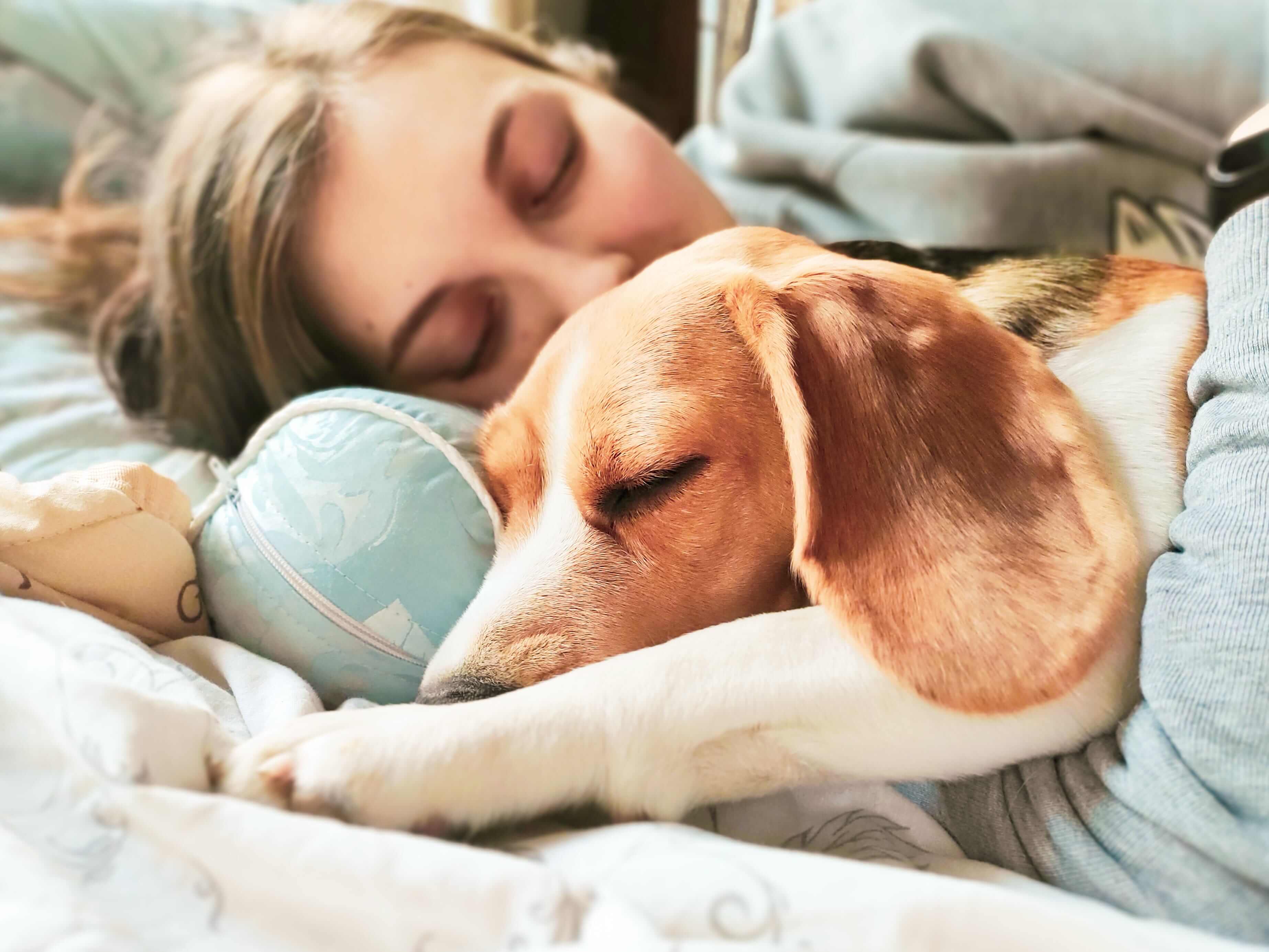Posted by Rachel Marshall - Brand Manager on 9th Aug 2022
Sleep Cultures Around The World
We feel like we’ve pretty much got our bedtime routine down in the UK. Spend time winding down, doing your teeth, skincare, and then it’s time to hop into bed and sleep soundly for eight hours…well, that’s the aim anyway!
But how do other countries do it? In this article, we take a look at some of the most interesting bedtime routines from all four corners of the globe, not least to see if there’s anything we can borrow for ourselves!
No worries in Guatemala
In Guatemala, Central America, worry dolls make up an important bedtime tradition. These little dolls are made of wood or wire and dressed in fabric or thread. They are designed in the style of indigenous women of the country.
According to Mayan tradition, telling your worries to the doll and putting it under your pillow while you sleep will help to prevent you taking your worries to bed and therefore help you to sleep more soundly. Some hotels even provide worry dolls for their guests to use while they are staying there.
There’s definitely something to be said for getting worries out of your head at before you drift off to sleep. Actively focusing on doing this can help to leave your mind clear and you may find it much easier to fall asleep – and stay asleep.
If you have something on your mind, why not try writing down your worries before you sleep? This way, once you have articulated them in this way, people often find they can sleep better, without tossing and turning.
Furry friends in the USA

We know the old adage that a dog is a man’s (or a woman’s!) best friend and nowhere is this more true than in the United States of America. We thought we loved our dogs in the UK but a recent study found that 71% of Americans let their dogs sleep in bed with them at night time - more than any other country surveyed. [1]
It’s thought that having your pet with you in bed could even lead to a better night’s sleep and less stress. [2] Dogs provide comfort and security during the night – it’s like having a real-life cuddly toy!
While there may be benefits to sleeping with your pet, it’s also important to wash your sheets and bedding more regularly than you usually would, thanks to things like extra hair, drool and mucky paws.
READ MORE: Check out our guide to keeping your bedding spick and span, for some helpful advice and tips.
Children’s bedtime routines in Argentina
Let’s talk children’s bedtime routines. What time do you put your children to bed? Of course, this will depend on their age but it’s usually somewhere between 7pm and 9pm in the UK. [3]
In Argentina, South America, children are able to stay up much later and they typically aren’t usually in bed before 10pm. Over there, they tend to have dinner at a later time, compared to us in the UK and families enjoy spending time together later on into the night. European countries such as Spain and France also let their little ones stay up later.
Children are also more likely to co-sleep with their parents or siblings in Argentina too. [4]
South Korea and fans
South Korea, Asia, is well known for its hot and humid climate during the summer months. Temperatures often reach in excess of 28 degrees from May right through to September, something we can only dream of here in the UK!
However, you won’t find Koreans sleeping with an electric fan on, especially among the older generation. There’s an old wives’ tale which warns that you might die if you fall asleep next to an electric fan. [5]
There isn’t thought to be any truth in this – after all, how many of us sleep with a fan on once we get to the dizzying mercury heights of a UK summer?!
Praying in Mexico
According to a 2013 survey from the National Sleep Foundation, 62% of Mexicans pray or meditate before they go to bed, 15% higher than their neighbours in the USA. [6]
Mexico is predominantly a Catholic country [7] but even if you’re not religious, it’s a good idea to practice some sort of mindfulness before bed.
Mindfulness and meditation are relaxing practices which help to clear your mind from worries and other thoughts. Creating a peaceful environment for both your mind and body can help to reduce sleep troubles, making it easier to drop off. [8]
Bensons for Beds and a good night’s sleep
Find out how we can help you get your bedtime routine to a good start with a bed and mattress that’s right for you by giving us a call at 0808 144 6160 to place an order today.
Midnight Sun in Norway
In Northern Norway, there are 76 days of midnight sun between the months of May and July. This means that Norwegians experience more hours of sunlight in the day, sometimes up to 24 hours. [9]
The extra light and lack of darkness can disrupt body clocks, making people feel livelier and more energetic and so Norwegians tend to sleep less during these months. You might find people in Norway mowing the lawn at midnight, drinking coffee at 1am or even starting a hike late at night! [10]
Not for us Brits, thank you, we love our sleep! But if you struggle to sleep during the summer months in the UK when it stays lighter for longer and gets light earlier, it might be time to invest in some black out blinds, which keep the room dark so you can mimic natural light cycles.
Folklore traditions in Finland
Another folklore tradition can be found in Finland during midsummer. Midsummer represents the high point of summer in Finland and takes place in June.
Midsummer was originally a Pagan celebration where people paid tribute to a god to try to get a good harvest in the coming months. [11]
During midsummer, Finnish women collect different flowers and place them underneath their pillows while they sleep. It’s thought that this will make them dream of their future partner. When they wake up, it’s time to go and find them for real!
Separate duvets in Germany
Have you ever found that your partner hogs the duvet while you sleep? Sometimes it can escalate into a full-on tug of war if both parties like to sleep with plenty of duvet wrapped around them.
Couples in Germany like to have their own personal duvet, rather than one large one to share. [12] Austria and some Scandinavian countries do this too.
Well, if it keeps the peace! Try this at home by getting two single duvets, rather than a double or, if you don’t want to stop sharing, buy the duvet size that is one up for your bed size so that you’ve both got plenty of coverage.
Making your bed in Afghanistan
In Afghanistan, there is no such thing as a bedroom. Instead, rooms in the house are used for different purposes during the day and they’re slept in at night time.
This means that each morning mattresses and blankets must be put away, a bit more of an effort than just dragging your duvet back across your bed each morning.
Part of the bedtime routine in Afghanistan therefore involves getting these out again and making the bed before you can fall into it. [13]
Traditional beliefs in India
In India, there are a few bedtime routines which come from local folklore. In the south of the country, women tend to tie their hair back before they go to sleep.
While this is quite a good idea to avoid your hair getting in your way while you sleep, or getting knotty during the night, Indian women apparently do this to avoid being possessed.
Some Indians also leave a glass of water near the bed and not just in case they wake up and need a drink during the night. This is because they believe that the soul leaves the body at night, in search of water. [14]
Polyphasic sleep in Egypt
People living in Egypt tend to sleep twice in a 24 hour period, rather than just having a long sleep at night time. They may sleep for around six hours in the evening and have a two hour sleep during the afternoon. [15]
Other countries which are keen on an afternoon nap include Spain, Italy and Japan, where an afternoon nap at work is actively encouraged to promote productivity.
This is one sleep habit that we can really get on board with! Studies show that afternoon naps can be beneficial. They can help to improve your performance at work, boost your mood and make you feel more alert. [16]
It is thought that the best time to take a nap is during the early afternoon, when your energy starts to dip. Set your alarm for 10-20 minutes and head to bed for a power nap. [17]
Bedtime routines in space
We’re heading out of the world for this one. Have you ever wondered how astronauts sleep in the International Space Station? When they’re ready to go to sleep, they have private sleeping quarters which they need to crawl into.
They have special sleeping bags which they have to strap themselves into so that they don’t float around during the night, simply because the gravitational pull there isn’t as great as it is on earth. [18] Imagine otherwise waking up to find that you’ve floated straight out of bed!
The conditions on the space station are also carefully controlled to help astronauts get some shuteye. The lighting, noise levels, temperature and carbon dioxide levels are all carefully regulated so that they can get a good night’s sleep.
How the UK can improve its sleep culture
According to our resident sleep expert, Dr Sophie Bostock, the UK could be doing more to improve national sleep health, “Research into the importance of good quality sleep for physical, emotional and cognitive health has accelerated in the last two decades. There seems to be a growing recognition that we should not neglect sleep, yet many people still don’t know how to sleep well. The stress and uncertainty of the pandemic heightened sleep difficulties for many people around the world, leading to distress (e.g. Alimoradi 2021).
“I certainly think that as a country we have an opportunity to increase education around sleep science, and the importance of circadian rhythms. For example, the The Royal Society for Public Health has recommended that sleep education be incorporated into PSHE in schools. Medical schools could also place a much greater emphasis on understanding the physiology of sleep and evidence-based behavioural and psychological interventions for sleep improvement (RSPH 2019). In business, leaders also have an opportunity to lead by example, and support a healthy culture around sleep and recovery e.g. Business in Community Toolkit.”
SOURCES
[1] https://www.prnewswire.com/news-releases/more-tha...
[2] https://www.insider.com/sleeping-habits-from-arou...
[3] https://www.heart.co.uk/lifestyle/parenting/exact...
[4] https://www.moms.com/bedtime-routines-around-worl...
[5] https://www.npr.org/sections/parallels/2015/08/09...
[6] https://stacker.com/stories/4411/30-sleep-habits-...
[7] https://www.state.gov/reports/2018-report-on-inte...
[8] https://www.healthline.com/health/meditation-for-...
[9] https://www.visitnorway.com/things-to-do/nature-a...
[10] https://www.fodors.com/news/photos/the-unique-and...
[11] https://finland.fi/life-society/enjoying-midsumme...
[12] https://www.fodors.com/news/photos/the-unique-and...
[13] https://www.fatherly.com/parenting/parents-kids-b...
[14] https://www.fodors.com/news/photos/the-unique-and...
[15] https://sundaycitizen.co/blogs/news/30-sleep-habi...
[16] https://www.webmd.com/a-to-z-guides/ss/slideshow-...




